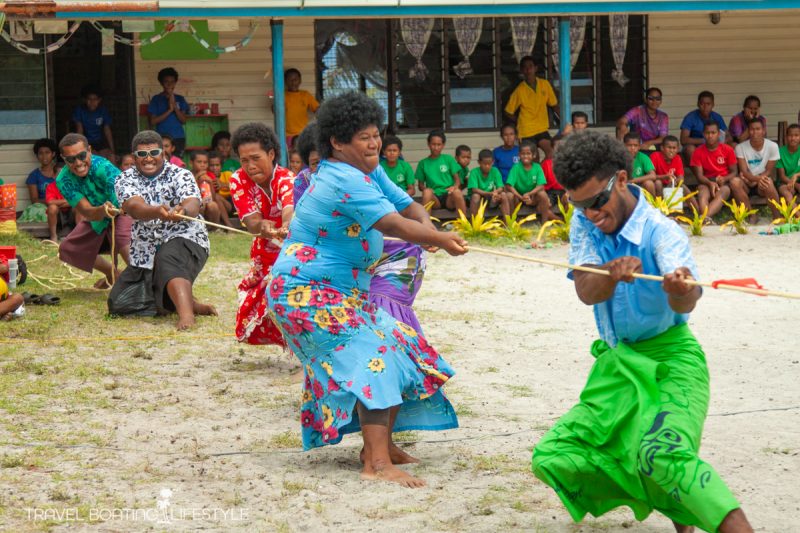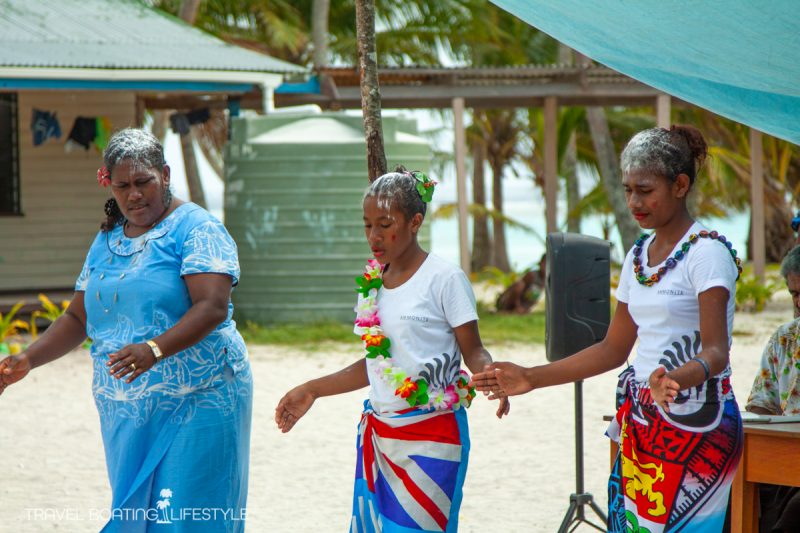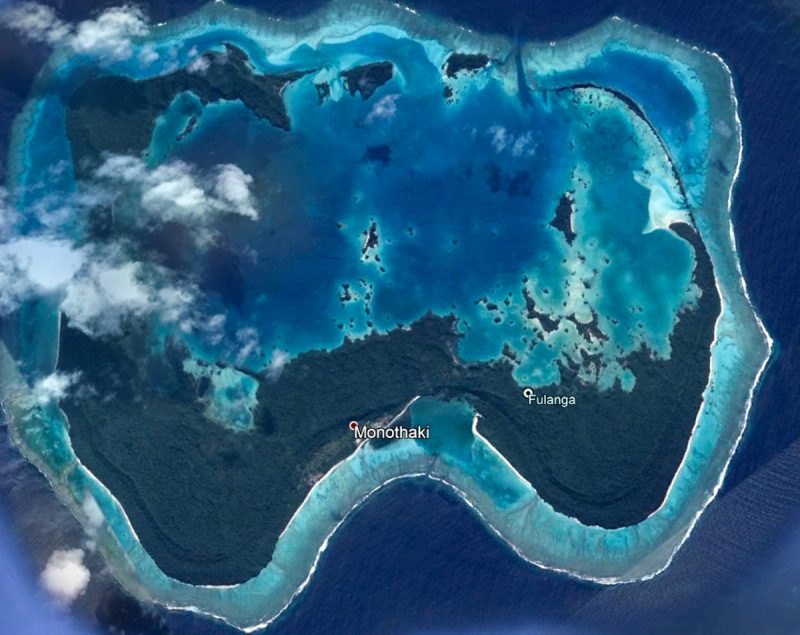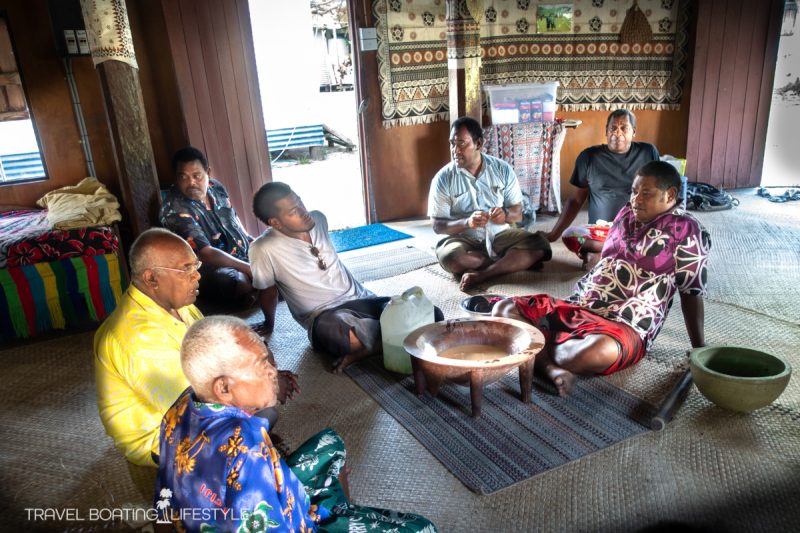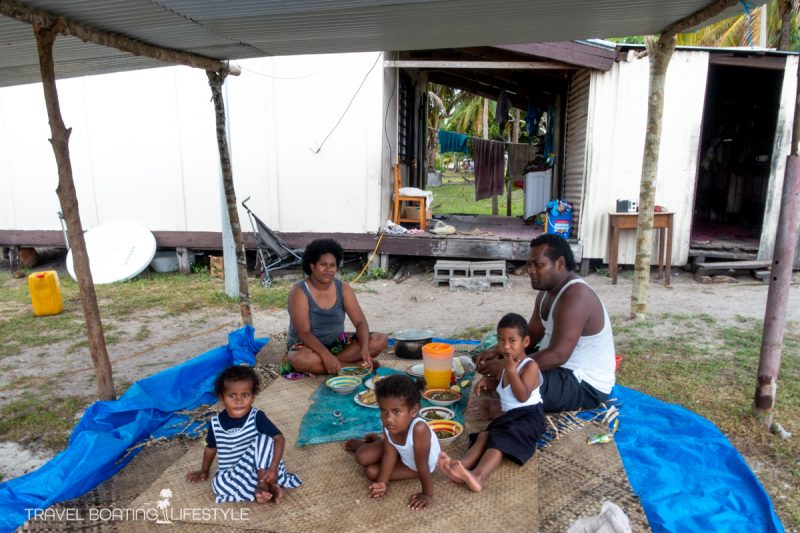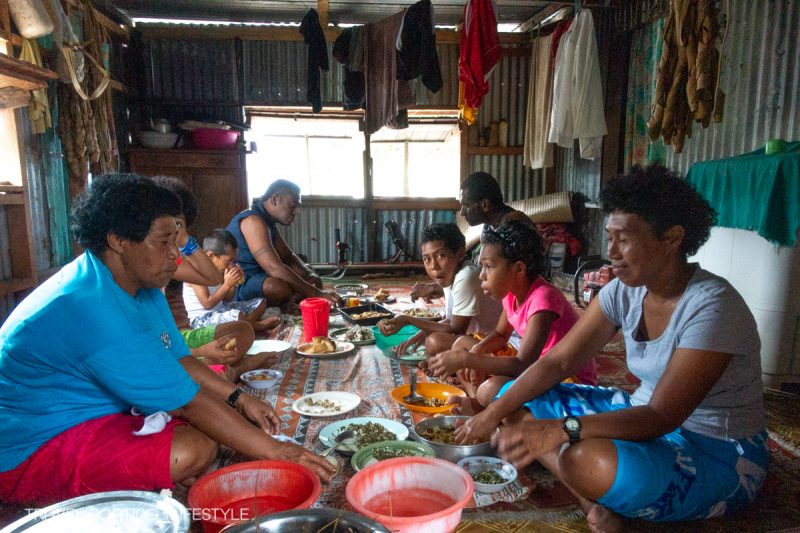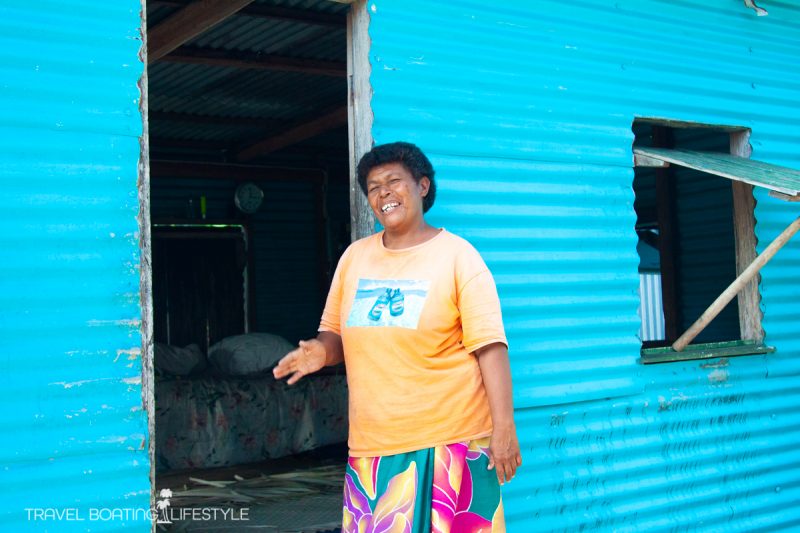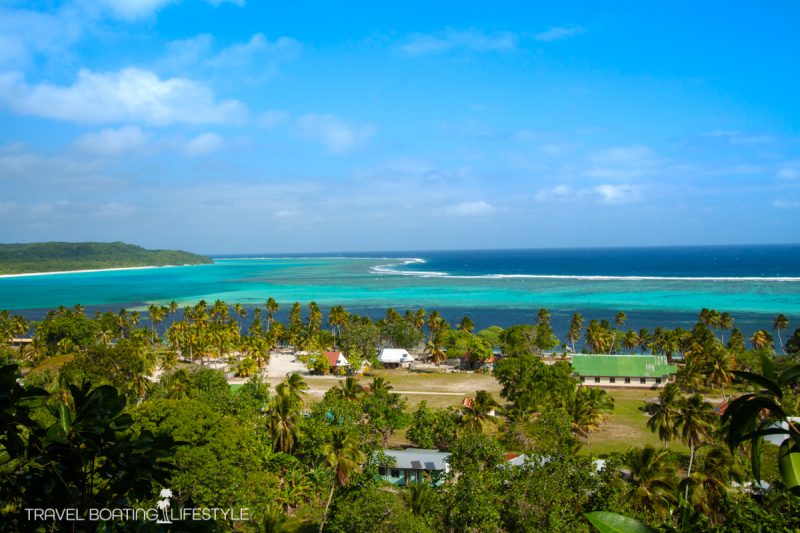
Muana-i-cake Village on Fulaga Island
Go beyond the South Pacific cliche of palm trees and beaches to meet the people of Muana-i-cake village (pronounced Mon-a-tha-key), a village of around 100 residents on Fulaga (pronounced Foo-lang-ah) Island (also spelt Vulaga Island) in Fiji’s remote Southern Lau Group. Fulaga Island is about as far east in Fiji as you can without sailing into International Waters.
With little outside influence, villagers live much as their ancestors did, fishing and farming to support each other, heavily influenced by traditional values. Sharing of skills and resources underpins a strong community spirit which benefits residents of three villages on Vulaga Island.
Men and women practice traditional crafts like weaving, carving and making magi magi, a rope woven from the fibres of coconut husks that is used to embellish buildings across Fiji. Vulaga Island weavers and carvers are recognised as some of the most skilled in Fiji with their craft works highly sought after.
If you can’t travel to Fulaga to see their crafts you can find some of these exquisite works from Lau artisans for sale in Jacks stores in Nadi and Suva.
READ Bay of Islands – one of the world’s best anchorages
Fulaga Village welcome by Chief Mika
“I am Mika Colati from Muana-i-cake village of the Vunikoro clan, Acting Chief of Vulaga Island in the Southern Lau Group, Fiji. I welcome you into our village.
I think it is a good idea to collect the stories from us, so everybody can look back at what is recorded to help us remember our traditions. I remember our forefathers, our grandfathers and my father and know that solesolevaki* and veiwasei* * is a good idea, we really like how it helps the village… our families can look back and everybody will remember our village.”
* Solesolevaki defines the community spirit which guides villager’s contribution to the overall prosperity of the village by helping each other with farming, building, fishing, family chores, or wherever else help is required.
** Veiwasei describes the generosity of sharing resources and skills between family, clan and village
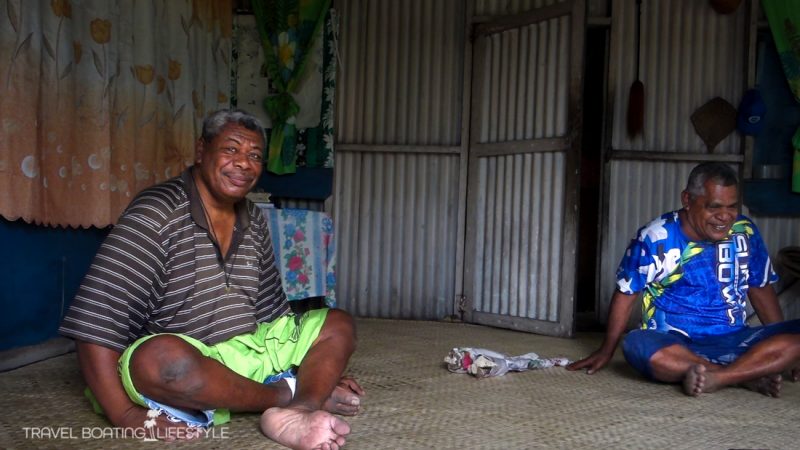
Chief Mica (who sadly passed away in Nov 18) conducts sevusevu ceremony at Fulaga village
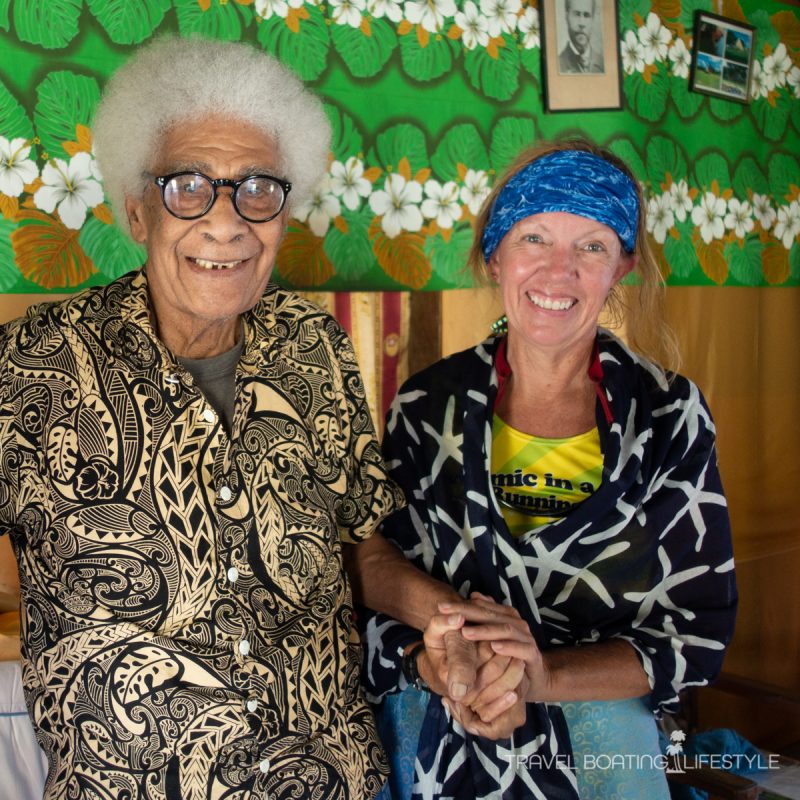
The author Fiona Harper and Chief Bese who sadly passed away some months after this photo was taken
What you should know about Fijian Sevusevu ceremony
Sevusevu is the name given to the gift presented to the village Chief when arriving at a Fijian village. The usual gift is yagona (kava root) or kava powder, and is offered to the Chief as a goodwill gesture to request permission to visit the villages’ traditional land and waterways.
Fiji’s common law decrees that all land belongs to locals and so permission must be sought when visiting. It is customary for visitors to seek permission through the head villager, known as Turaga ni Koro (pronounced too-ranga-koor-oh), to request sevusevu ceremony. To not do so is a sign of disrespect and visitors are considered trespassers if they do not partake in sevusevu.
Village etiquette requires that ladies wear clothing that covers their knees and shoulders, men should wrap a sulu or sarong around their legs and hats and sunglasses should be removed. Taking photographs of sevusevu is usually ok but it’s polite to ask first.
Sevusevu ceremony can be a short casual affair that is over in a few minutes or it can be an elaborate ceremony with the entire village present, and may be the precursor to an extended celebration around the kava bowl that lasts long into the night. It depends entirely on the village and how they choose to conduct sevusevu. The ceremony starts with everyone seated on the floor, the Turaga ni Koro will speak, the Chief will speak, usually in Fijian, then at the end there will be an English translation welcoming visitors into the village.
In Fulaga Island, sevusevu is always a reason for celebration, as it signifies new yacht crews have arrived in the lagoon and will likely be spending time in the village. Sevusevu is an opportunity for host families to welcome new arrivals and show them around the village. If a couple of yachts arrive around the same time, a group sevusevu ceremony will eventuate, the kava bowl is filled and visitors and villagers will likely spend many convivial hours around the kava bowl.[/vc_column_text]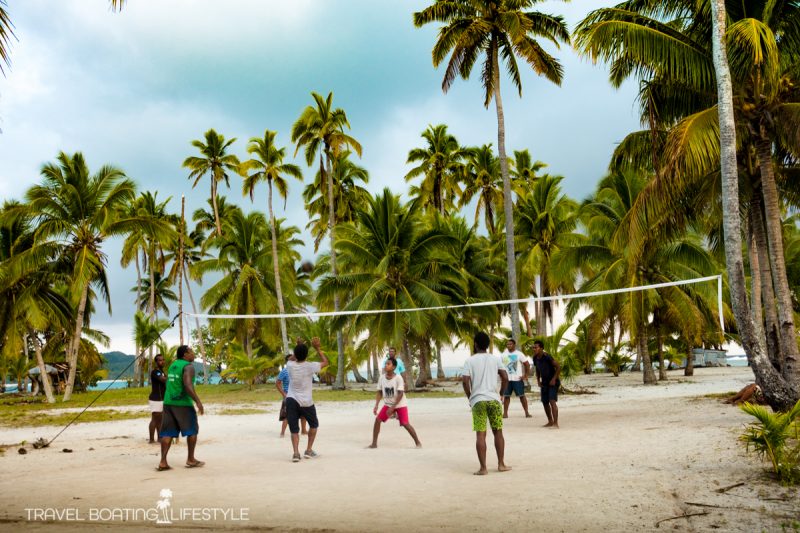
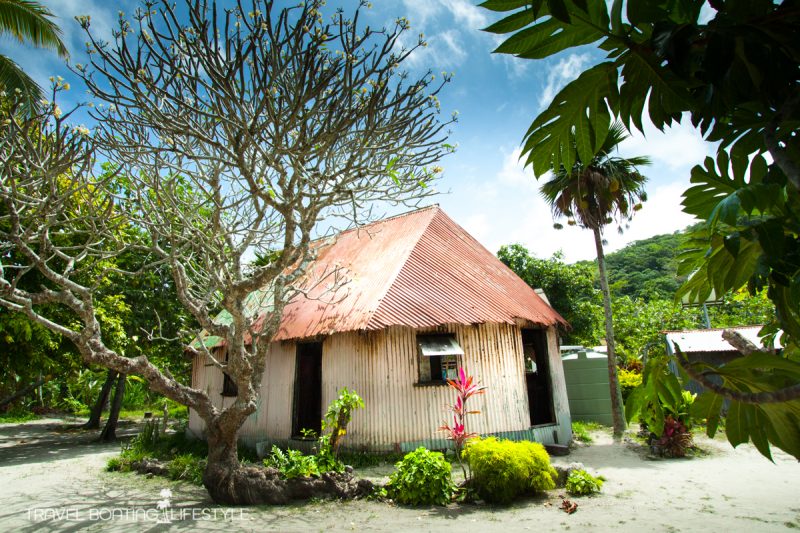
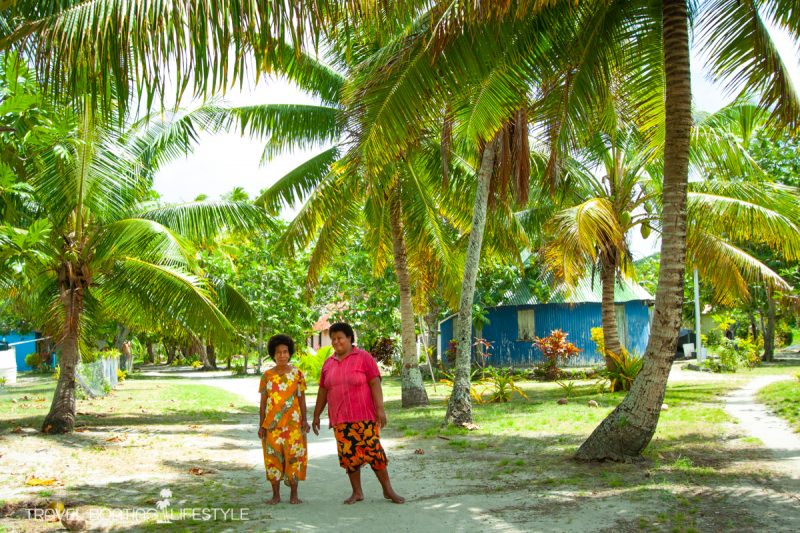
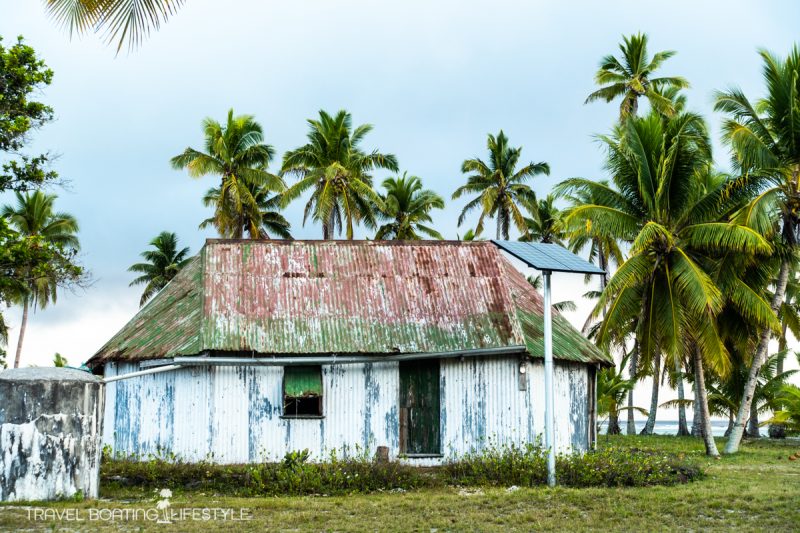
Village Life on Fulaga Island
There are few places in the world where a war of global significance that impacted millions of people can slip by virtually unnoticed. Vulaga, a far-flung weathered limestone island archipelago rising from a picturesque lagoon in the South Pacific Ocean, is one of them.
An elderly island resident Moses says when asked about how village life has changed over the years that in the early 1940’s villagers had no inkling that a world war was raging over their watery horizon. “We didn’t know anything about a war. We had no radio,” he recollects.
Straddling the International Dateline dogleg at longitude 180 degrees, Fulaga Island is home to approx. 400 residents across three villages – Naividamu, Muana-i-rai and Muana-i-cake. Muana-i-cake is the central hub of Fulaga Island and is home to the primary school, nurses station and a hut which serves as the bank and post office.
Residents maintain a subsistence lifestyle, harvesting food from the land and sea to supplement supplies that come by the irregular barge service from Suva.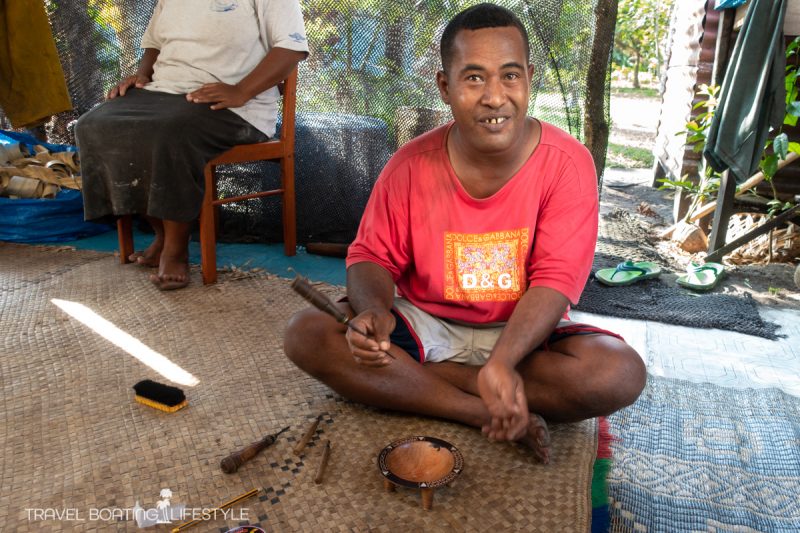
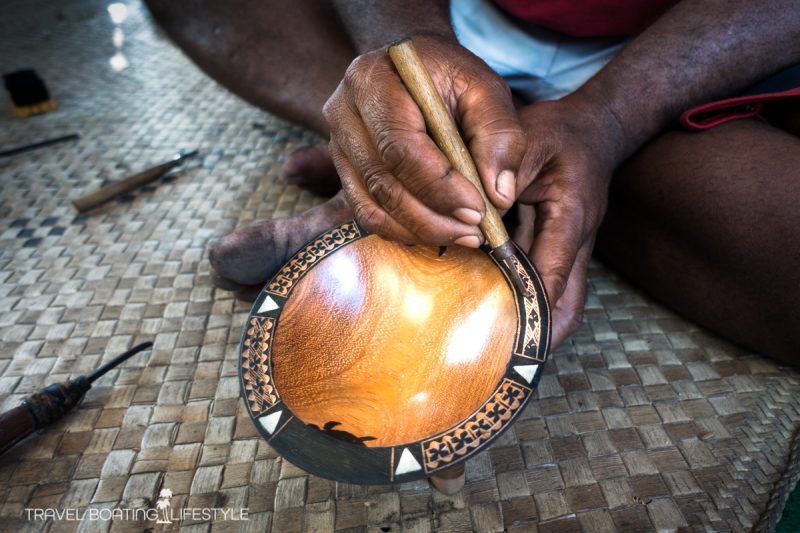
Visiting Fulaga Island
Cruising yachts make up most of the outside visitors to Fulaga, which almost 100 yachts dropping anchor in the lagoon each year. Some crews return year after year so warm is the welcome from villagers. Yachts pay FJD50 to the Chief before being invited to a sevusevu ceremony, the traditional welcome ceremony which grants permission for visitors to access land and sea belonging to the village. READ Boating Guide to Fulaga Island
Families at Muana-i-cake village take turns at hosting the crew of each yacht, inviting crew to become part of village life. The first time I visited Tai was my host, then the next visit Jojo (George) and Ma along with Tai hosted me. Their generous hospitality is almost overwhelming, sharing meals, fresh fruits and fish along with an endearing friendship. This hosting arrangement is not common in Fiji and offers a rare opportunity for visitors to get to know the locals and learn about village life. At Fulaga Island, with little digital connection and far from the high tech mainstream world, daily life is all about connecting with one another and helping family and friends.
On my first to Fulaga I travelled with Captain Cook Cruises, who run approx. three annual cruises to the Lau Group. On this first visited we stayed just long enough to get a tantalising taste of this beautiful island outpost, inspiring me to return. Later, I returned to the Southern Lau Group on a yacht for an extended visit after cruising the Northern Lau, then again last year. The fascination with this remote island remains, not just because of its drop-dead gorgeous island landscape (as important as that is). What really stands out from visiting Fulaga is the warmth and heartfelt welcome by villagers given to visitors.
